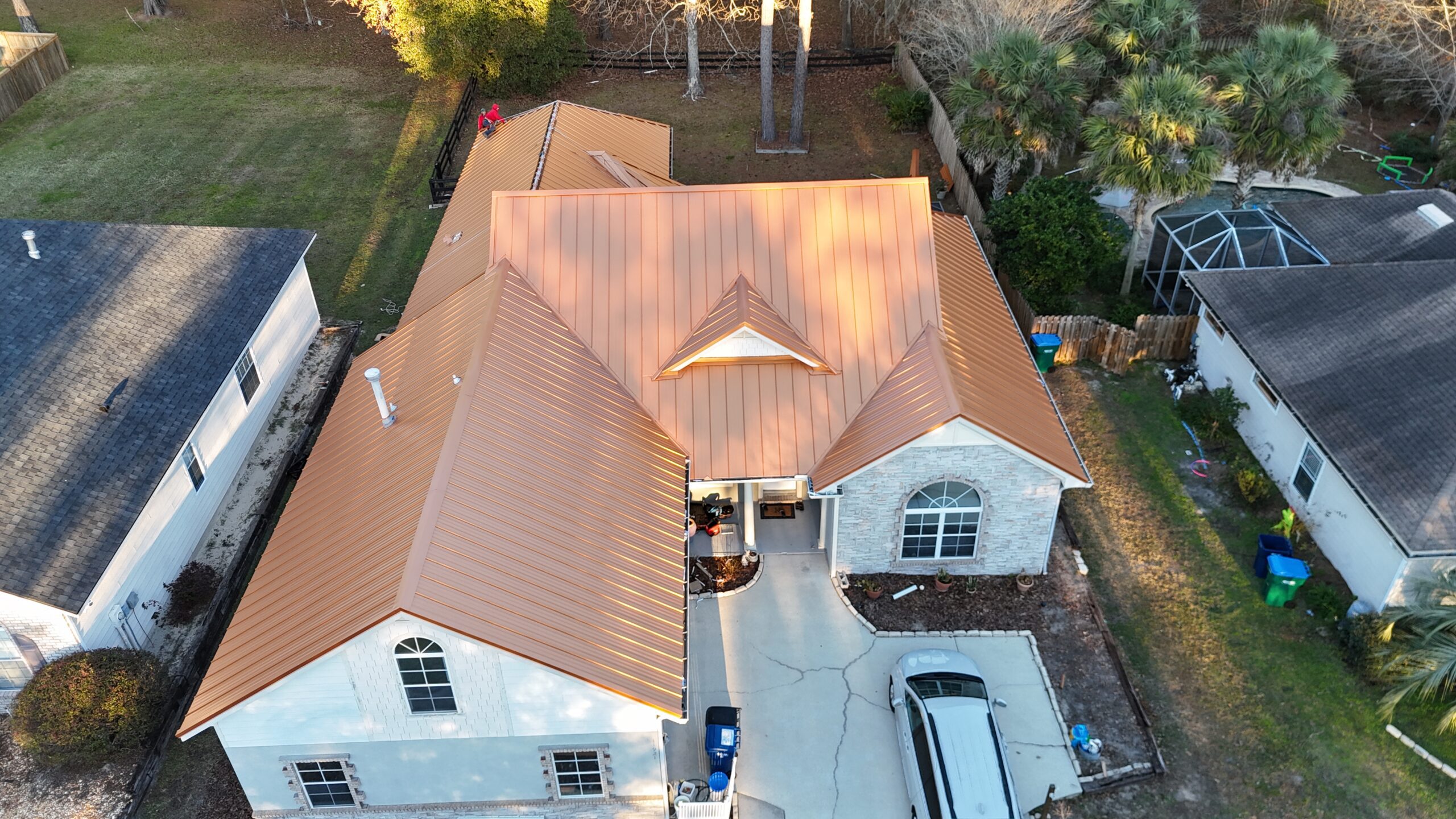How Roofing Impacts Energy Efficiency and Utility Bills. Your roof does more than just protect your home from the elements—it plays a significant role in your home’s energy efficiency and can have a direct impact on your utility bills. A poorly insulated or inefficient roof can cause energy loss, driving up your heating and cooling costs, while a well-designed roof can help regulate indoor temperatures, improve comfort, and reduce energy expenses. At Mock 3 Performance Roofing, we understand the importance of choosing the right roofing solutions to optimize energy efficiency. Here’s how your roof affects your energy usage and what you can do to maximize its performance.

How Roofing Impacts Energy Efficiency and Utility Bills
When it comes to energy efficiency in your Florida home, the roof often plays an overlooked but critical role. A well-designed and properly maintained roof can help regulate indoor temperatures, reduce the strain on your HVAC system, and lower your utility bills. Conversely, an inefficient roof can lead to significant energy loss and skyrocketing costs. At Mock 3 Performance Roofing, we know that your roof is more than just a structural necessity. Roofing impacts energy efficiency as well. It’s a key factor in your home’s comfort and energy performance. Understanding how your roof impacts energy efficiency is the first step toward making smarter, more cost-effective choices.
1. The Roof’s Role in Temperature Regulation
Your roof is your home’s first line of defense against external temperatures. During hot summers, it absorbs heat from the sun, while in winter, it helps retain warmth inside your home. However, without proper insulation, ventilation, or energy-efficient materials, a roof can either trap excess heat or allow valuable heat to escape, forcing your HVAC system to work harder and increasing your energy bills.
2. Roofing Materials and Energy Efficiency
The type of roofing material you choose can significantly affect your home’s energy performance. Here’s how different materials compare:
- Asphalt Shingles: While affordable, traditional asphalt shingles absorb heat, which can increase cooling costs in hot climates. Opting for light-colored or reflective asphalt shingles can improve efficiency.
- Metal Roofing: Highly reflective and durable, metal roofs are excellent at deflecting heat, making them a popular choice for energy-efficient homes.
- Tile Roofing: Clay or concrete tiles naturally resist heat and are particularly effective in hot climates.
- Cool Roofs: Designed with reflective materials or coatings, cool roofs can lower surface temperatures, reducing heat absorption and cooling costs.
3. The Importance of Roof Color
Believe it or not, the color of your roof can influence energy efficiency. Light-colored roofs reflect more sunlight, keeping your home cooler in warm climates. Dark-colored roofs, on the other hand, absorb more heat, which can be beneficial in colder regions. Selecting the right color for your climate can make a noticeable difference in your energy bills.
4. Insulation and Energy Savings
Proper insulation is critical for maintaining a comfortable indoor temperature and minimizing energy loss. Without adequate insulation, heat can escape during winter and enter during summer, overburdening your HVAC system. Upgrading your roof insulation is one of the most effective ways to enhance energy efficiency and reduce utility costs.
5. The Role of Ventilation
Ventilation plays a vital role in preventing heat buildup in your attic and ensuring proper airflow. Without adequate ventilation, trapped heat can raise indoor temperatures and strain your air conditioning system. Ridge vents, soffit vents, and attic fans are key components of a well-ventilated roof, helping to maintain energy efficiency year-round.
6. Reflective Roof Coatings
Reflective roof coatings are a cost-effective way to improve energy efficiency. These coatings can be applied to existing roofs to reflect more sunlight, reducing heat absorption and lowering cooling costs. They’re particularly beneficial in hot climates like Florida, where intense sunlight is a year-round challenge.
7. Preventing Air Leaks
Even the smallest gaps or cracks in your roof can lead to air leaks, allowing conditioned air to escape and outdoor air to seep in. Regular roof inspections and prompt repairs are essential for sealing these gaps and maintaining energy efficiency.
8. Solar Panel Integration
If you’re looking to take energy efficiency to the next level, integrating solar panels into your roof can help offset utility costs while reducing your carbon footprint. Solar-ready roofs are designed to support the weight and installation of solar panels, making them an excellent choice for homeowners who want to invest in renewable energy.
9. How Roofing Affects Utility Bills
When your roof is inefficient, your heating and cooling systems must work overtime to maintain a comfortable indoor temperature. This increased energy usage directly translates into higher utility bills. By investing in energy-efficient roofing materials, proper insulation, and regular maintenance, you can reduce energy consumption and save money over time.
10. Why Choose Mock3 Performance Roofing?
At Mock 3 Performance Roofing, we specialize in providing roofing solutions that enhance energy efficiency and lower utility costs. From installing reflective roofs to upgrading insulation and ventilation, our team is dedicated to helping homeowners achieve comfort and savings through smart roofing choices.
Conclusion
Your roof has a profound impact on your home’s energy efficiency and utility bills. By choosing the right materials, ensuring proper insulation and ventilation, and addressing any damage promptly, you can maximize your roof’s performance and enjoy long-term savings. Contact Mock 3 Performance Roofing today to learn how roofing impacts energy efficiency and how we can help you optimize your roof for energy efficiency and reduce your energy costs.
South Florida Division
772-267-2479
North Florida Division
352-210-3862
Tags: Roofing Impacts Energy Efficiency
